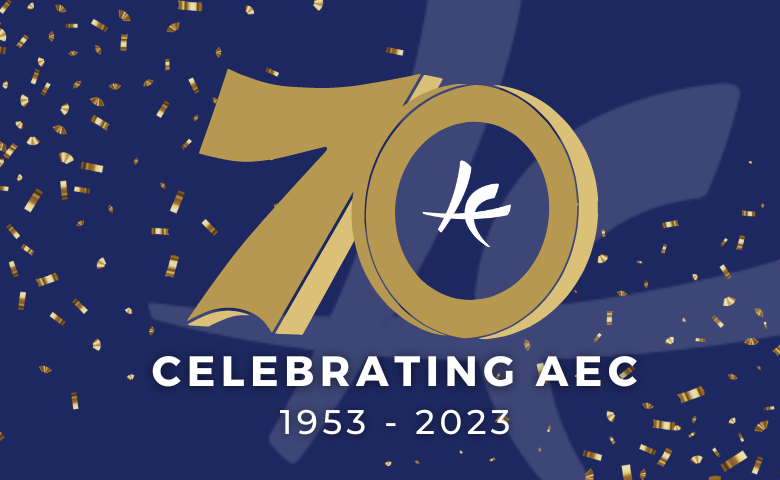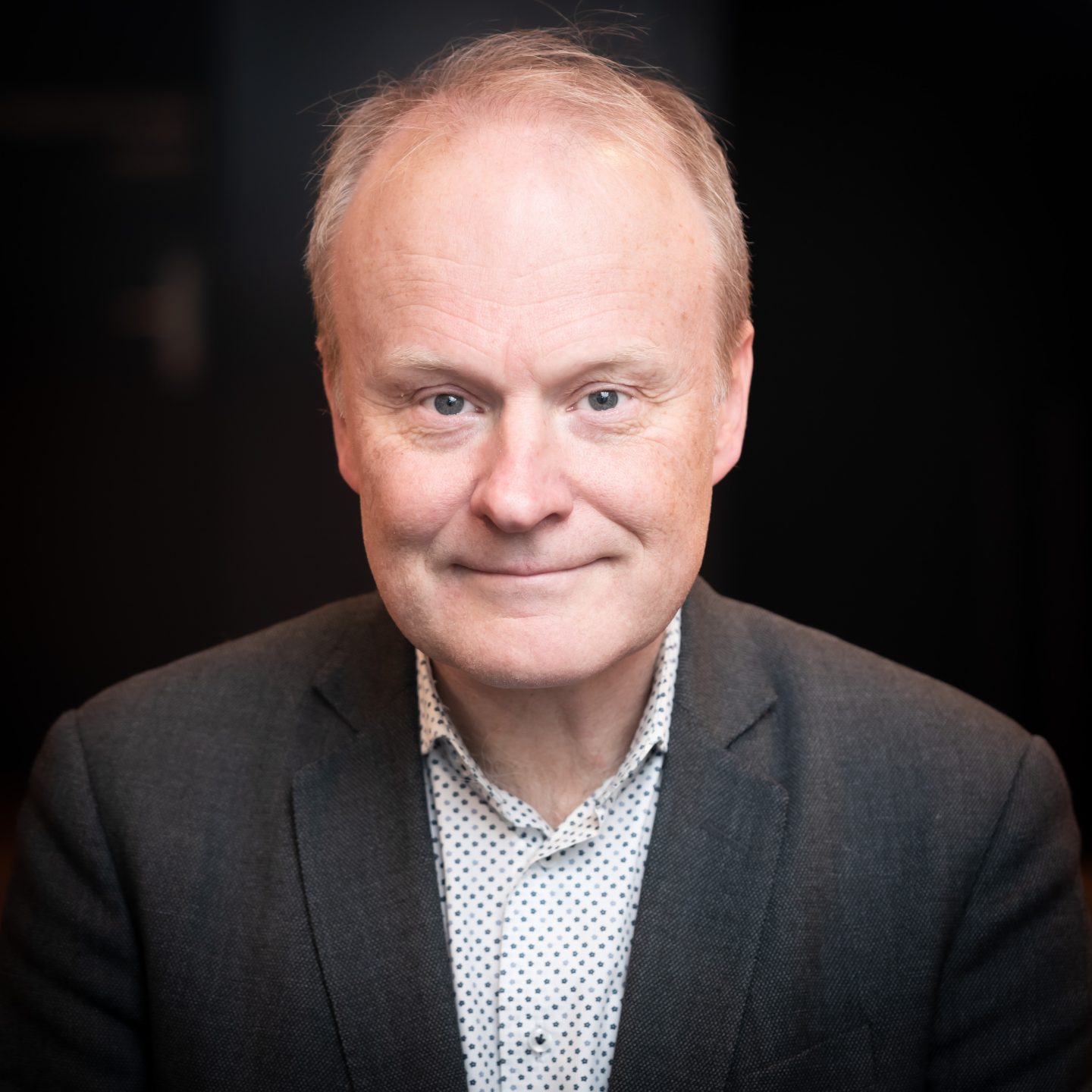The first time I got acquainted with the AEC was in the early nineties of the last century, when I was still studying cello and musicology at the Conservatoire and University of Utrecht. My activities were similar to any other student at that time: practising and performing, playing in ensembles and orchestras, doing research for the university, and in fact I had no ambitions for a management position. Nevertheless, this changed when I was drawn into a project supported by the EU programme TEMPUS, which was established to support higher education in countries in the former Soviet block following the fall of the Berlin wall in 1989. A project was set up to support the Prague Music Academy and I was asked to work for this project as a student assistant, simply because I spoke Czech because of my Czech origins. Later this project evolved into an ERASMUS Inter-University Cooperation Programme (ICP) called ‘Polyphonia’, which organised, together with the ‘Sibelius’ ICP coordinated from the Sibelius Academy in Helsinki, some of the first ERASMUS student and staff exchanges in the field of music.
The AEC for some reason was not involved in any of these activities at the time, but started to show interest in EU projects and cooperation. I therefore went to the AEC Congress in Luxembourg in 1995 and found an organisation with a lot of comradery but not that much activity. It was led by the estimable Sir John Manduell, principal of the Royal Northern College of Music in Manchester, a person with great charisma who had taken over the sole leadership of the AEC after it had functioned for decades with two presidents during the Cold War period: one in the West and one in the East (this was normally always the rector of the Moscow Conservatory). Already for this, it can be said that Sir John played a crucial role in the history of AEC. Nevertheless, it was noticeable at the Luxembourg Congress there was a new generation of colleagues emerging that wanted the AEC to become much more active and much less a cognac-drinking and cigar-smoking club of conservatoire directors. Very pertinent questions came especially from the Scandinavian contingent led by Bjørn Boysen, the rector of the Norwegian Academy of Music in Oslo at the time, someone whose English was very difficult to understand but who was surely one of the most clever persons I have ever met.
The situation completely changed when a new AEC Council was appointed during the Copenhagen Congress in 1996. A new formidable team consisting of Ian Horsbrugh (principal of the Guildhall School of Music and Drama) as President and Marc-Olivier Dupin (director of the Conservatoire de Paris) as Secretary General was elected and a new AEC Office was created in the Conservatoire de Paris with Isabelle Replumaz as its experienced administrator, who had been working for the AEC since the early nineties. A period of development followed, with AEC starting to be involved in its first EU projects. Both Ian and Marc-Olivier, supported by an excellent Council and Isabelle as administrator, showed a huge commitment to the AEC and I will never forget the many trips I took to Paris to be involved in the project development of the association. But also this period ended when the support to the office in Paris started to be uncertain following Marc-Olivier’s end of term as conservatoire director, and Isabelle’s appointment as the International Relations Coordinator at the CNSM de Lyon, a position she superbly executes until today.
Something had to be done. The AEC Council, in which Marc-Olivier’s position was replaced by Johannes Johansson from the Malmö Academy of Music, decided at the AEC Congress in Vicenza in 2000 to further professionalise the organisation by appointing a Chief Executive Officer and move the office to Utrecht, where office space was found in a building in which various Dutch cultural organisations were housed. In early 2001, I was appointed as the first CEO of the association, a position I held until 2011. I still remember vividly how I came into the building to find a huge pile of boxes, all diligently packed by Isabelle and containing all the AEC archives and materials. When I saw this pile, I was a bit uncertain about what to do next, but then, slowly and with the help of many, we started to set up, in fact, a completely new organisation with new statutes, a new office team, a new membership administration, and a new vision on the association’s purpose and activities.
Many years of growth and development followed. The membership of the AEC almost doubled and its portfolio of activities hugely expanded. Looking back, I can only say that I consider myself lucky in so many ways. First of all, I was very lucky with the AEC Presidents I had the privilege to work with. The first one was Ian Horsbrugh, a man with a great vision for the AEC and someone who tirelessly worked to develop the organisation, especially in the beginning of the Utrecht office period. Until today I am deeply grateful for his guidance to me as a rather inexperienced and young CEO. He led the AEC with great leadership, humour and diplomacy creating a shared and collegial community in the association as we know it today. Sadly, he died shortly after finishing his term as AEC President during the Oviedo Congress in 2004. He was succeeded by Johannes Johannson, who turned out to be another excellent President, leading the organisation until we both left in late 2010. Johannes was a league on his own: I have rarely met anyone else of such kindness and with such qualified ideas and intelligent opinions about any subject regarding conservatoire training and music in general. It was a huge privilege to work with him and get to know him so well. Tragically, he too died shortly after ending his term as AEC President.
I also feel very lucky about the members in the AEC Council we worked with over the years. To name just a few, there were Tuula Kotilainen, Thuring Bram, Philippe Dinkel and Finn Schumacker in the early days. Later, wonderful colleagues such as Pascale de Groote, Marie-Claude Segard, Cristobal Zamora, Dan Buciu, Georg Caird, Rineke Smilde, Erling Aksdal, Mist Thorkelsdottir, Hubert Eiholzer, Eirik Birkeland, Jorg Linowitzki and Gretchen Amussen joined the Council. Rineke’s role stands out in my memory in particular, as she helped tremendously with the organisation of my first AEC Congress in Groningen in 2001 and did this so well, that it set a standard for all subsequent congresses. Without the continuous support of these excellent Council members, the development of the AEC would have surely been less spectacular.
Another aspect I feel very lucky about, were the colleagues I had the great privilege and pleasure to work with in the AEC Office in Utrecht. Excellent and talented young people who often started their professional careers with the AEC. In the beginning there were Janneke Vrijland and Sofie Truwant, who played a crucial role in setting up the AEC in the Utrecht period. Later many competent colleagues followed, to name a few: Ester Tomasi, Eleonoor Tchernoff, Christine Masure, Pierre Mersch and Friederike Vogel. Two colleagues who started in the Utrecht office, still work for the AEC today: Sara Primiterra as the wonderful AEC Events and Project Manager and Linda Messas, now the highly experienced deputy CEO for AEC and the tireless driving force behind MusiQuE as its current director. We all had to work very hard but were also rewarded with many successful projects, activities and results. The role of these colleagues cannot be underestimated.
Finally I also feel lucky about the timeframe in which I worked for AEC. This was a time in which European cooperation in higher education had great priority as a result of the Bologna Declaration process. There was a clear policy transnational framework to which the AEC had to respond, both pro-actively and in some cases with great caution. There was quite a bit of funding available and we found ways to use it. Many great projects were successfully executed, such as ProMuse, DoReMiFaSOCRATES, Mundus Musicalis and of course the vast ERASMUS Thematic Network for Music Polifonia, which led to a huge amount of handbooks and activities over a period of nine years. With the projects Music Study, Mobility and Accountability and Accreditation in European Professional Music Training, the basis for what later became MusiQuE was founded. In the latter development, our close connections to our colleagues in the National Association of School of Music (NASM) in the US should be acknowledged: NASM executive directors Sam Hope and Karen Moynahan were of tremendous help to shape our own approach to external quality assurance here in Europe. Personally, I feel a huge debt to Sam for his great support during our monthly phone calls.
There are so many stories, anecdotes and personalities that come to mind when thinking of this period of the association’s development, but it would make this already long response only longer. Of course, it is important to speak about projects, activities, advocacy and successes. But what I learned most from my time with AEC is its huge potential for learning: AEC gives us the platform to learn about, from and with each other. And above all, I cherish the many friendships with colleagues which were formed in AEC, having been so privileged to be able to visit many institutions all over the world, where I met people with a tireless ambition to serve the interests of music and music education, sometimes in not so easy circumstances. It is for this AEC, an organisation I learned to respect and to love, that I would like to offer, as a recently elected AEC Council member, once again my experience, knowledge and tireless commitment.
I congratulate the AEC with its 70th anniversary and how special it feels that we will be celebrating this anniversary in the institution that I now work for!







